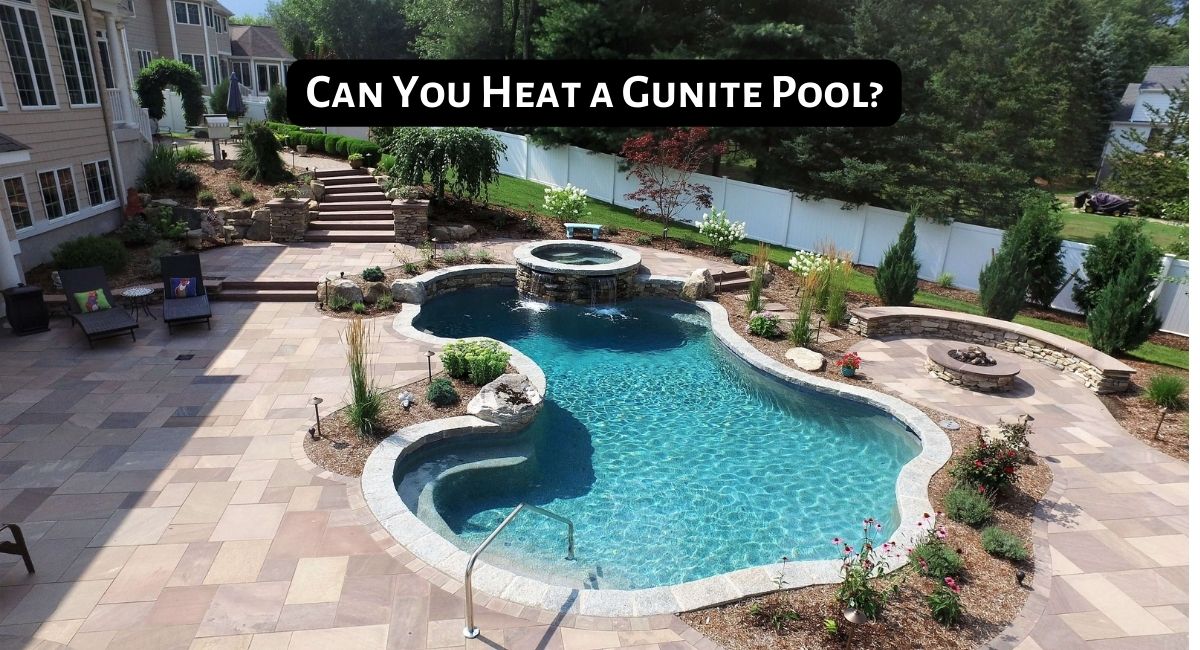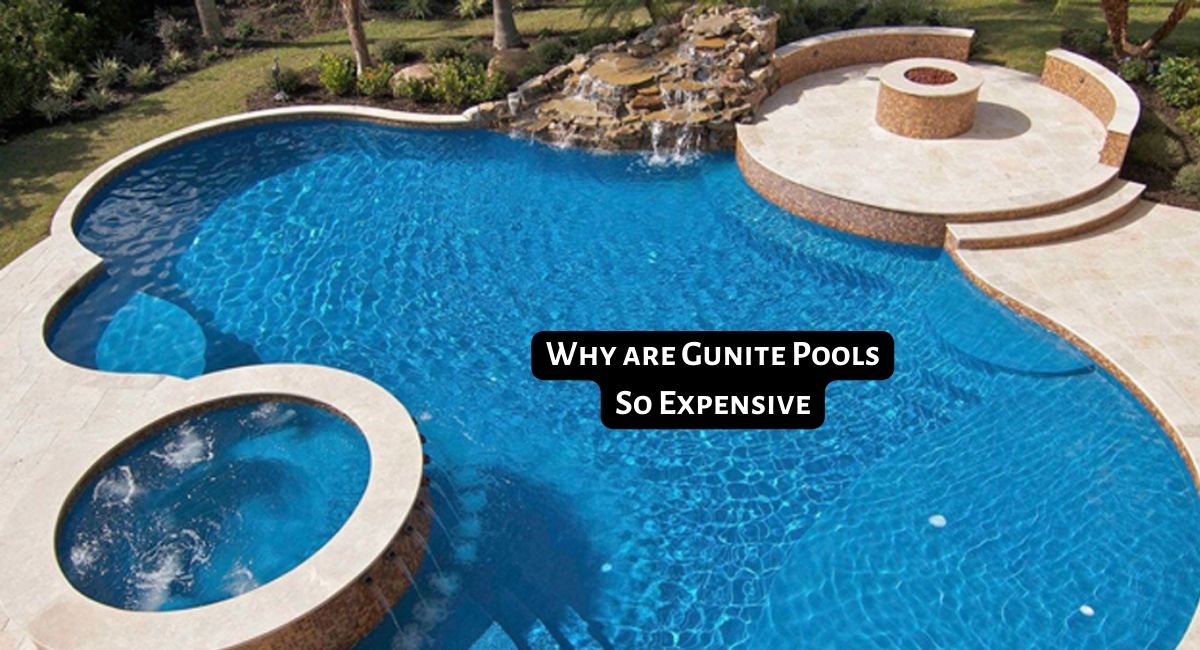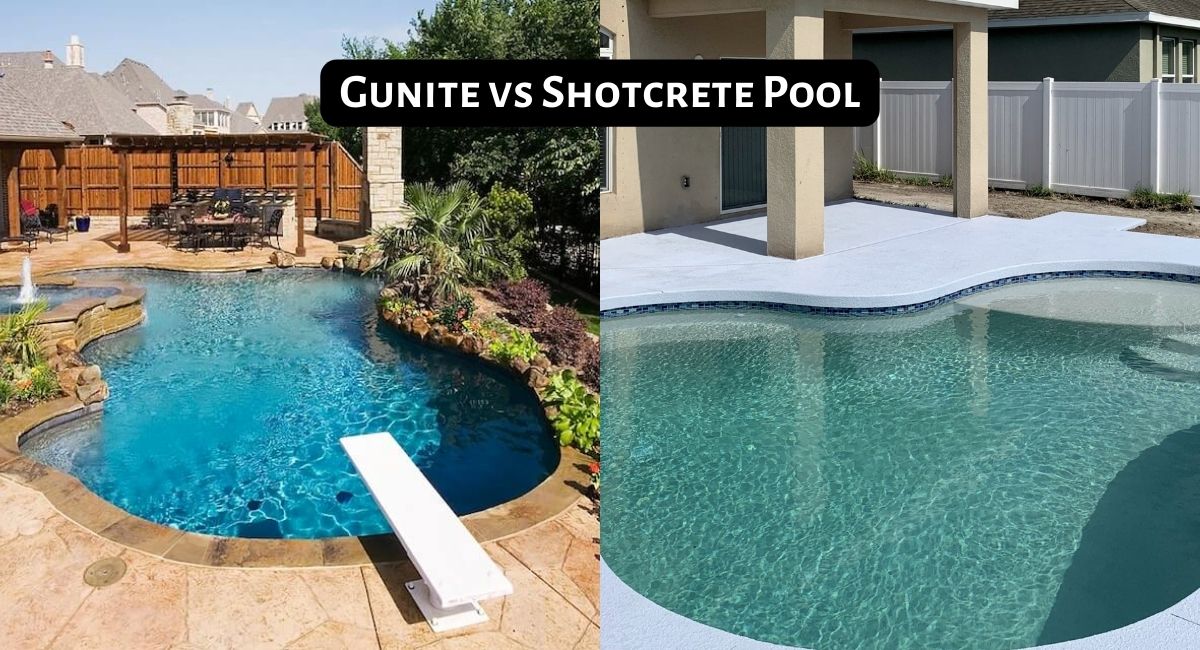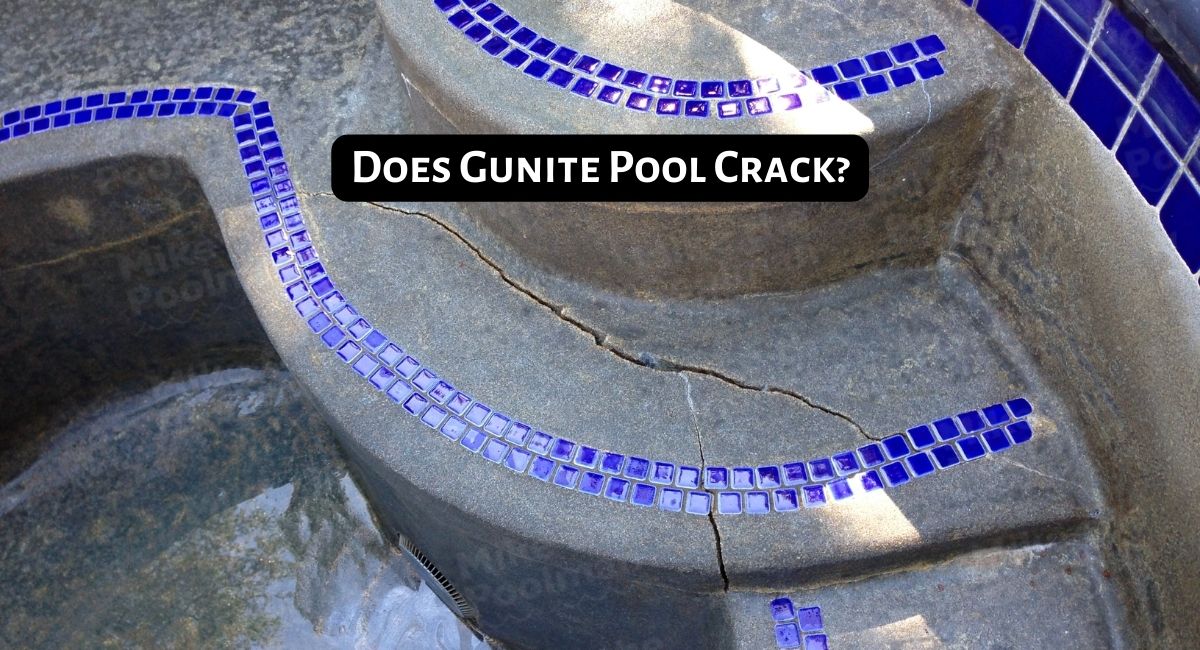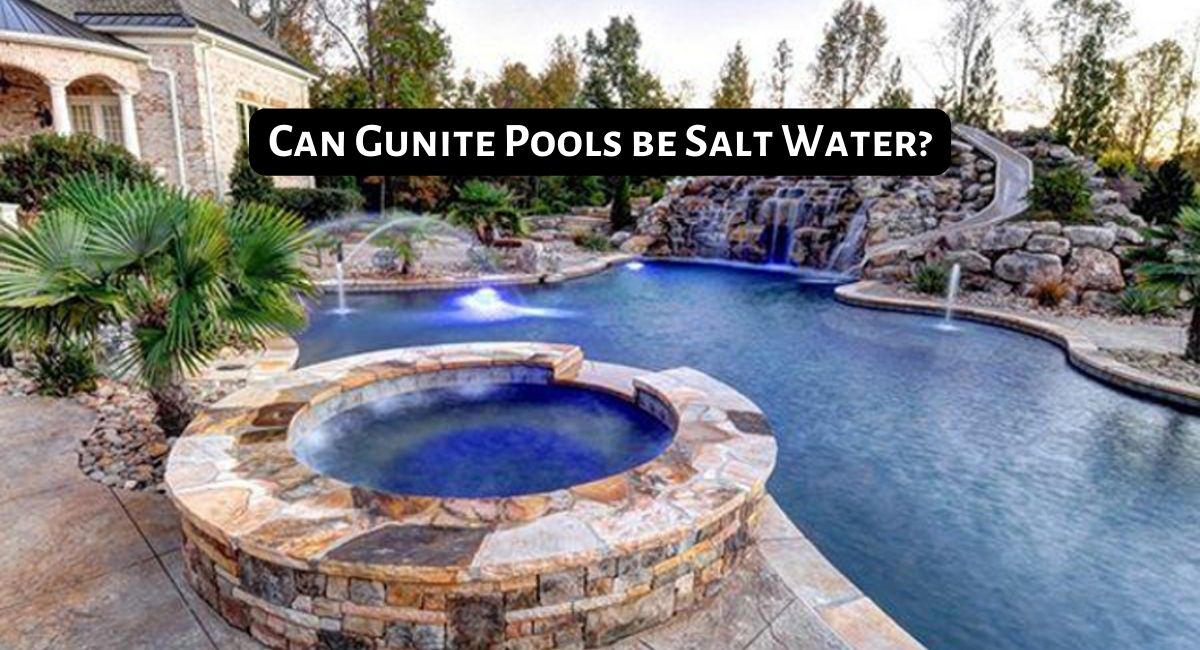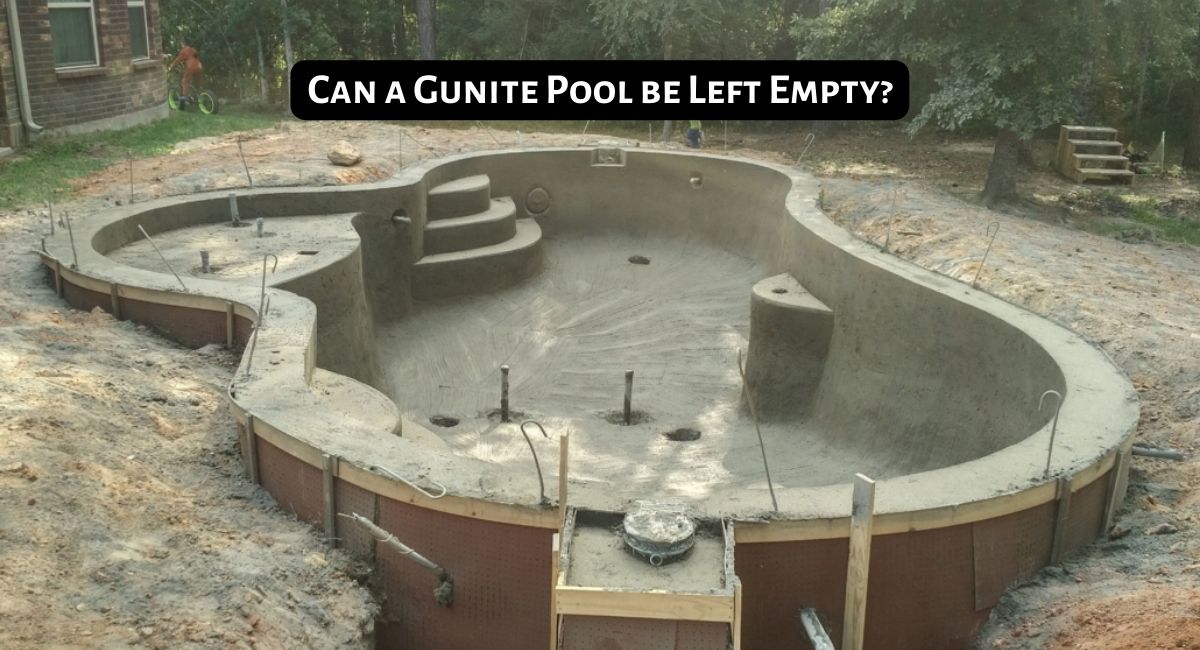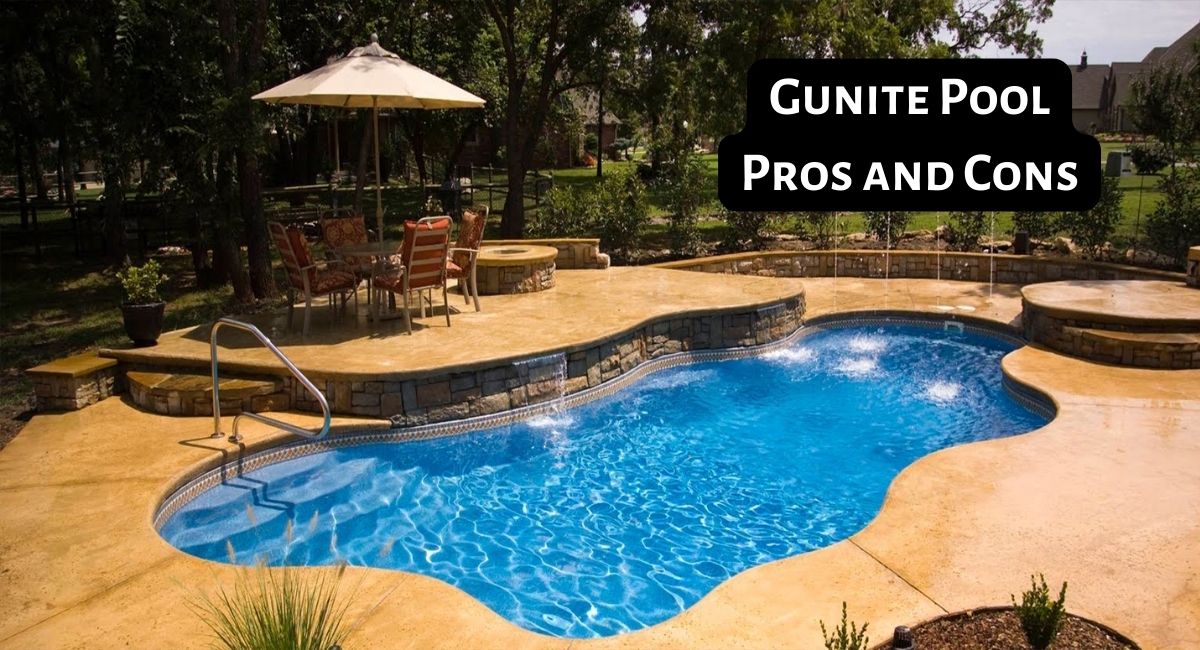Have you ever wondered if it’s possible to enjoy your Gunite pool year-round, even in cooler weather? Well, the good news is that with the right heating system, you can!
In this article, we’ll explore the options and techniques for heating your Gunite pool so you can make the most of it no matter the season.
Whether you’re looking to extend your swimming season or simply want to take a dip on a chilly evening, we’ve got you covered. Let’s dive in and discover how to keep your Gunite pool comfortably warm.
Table of Contents
- 1 Can You Heat a Gunite Pool
- 2 Factors to Consider Before Heating a Gunite Pool
- 3 What Are the Heating Options for a Gunite Pool
- 4 Additional Tips for Efficiently Heating a Gunite Pool
- 5 How to Maintain a Heated Pool
- 6 How to Heat My Already Installed Gunite Pool
- 7 How Much Does It Cost to Install a Heated Gunite Pool
- 8 Conclusion
- 9 Frequently Asked Questions
Can You Heat a Gunite Pool
Yes, heating a gunite pool is possible and can provide extended enjoyment and comfort throughout the swimming season. Gas heaters, electric heat pumps, and solar heating are popular options to consider based on your requirements and location.
However, it’s important to consider the associated costs, maintenance, and safety measures to make an informed decision. Consult with pool professionals to determine the best heating option for your gunite pool.
Factors to Consider Before Heating a Gunite Pool
Before deciding to heat a gunite pool, there are several factors that you should consider. By carefully considering them, you can make an informed decision about whether heating your gunite pool is the right choice for you.
- Cost: Heating a pool can significantly increase your energy bills. You need to evaluate the cost of heating your pool on an ongoing basis and determine if it fits within your budget. Consider the initial cost of installing a heating system as well as the monthly operational expenses.
- Climate: The climate in your region plays a major role in determining whether you will benefit from heating your pool. If you live in a warm climate where the temperature rarely drops, you may not need to invest in a pool heating system. However, if you experience cooler temperatures or have fluctuating weather throughout the year, heating your pool can extend your swimming season.
- Usage: Analyze how often you plan to use your pool and whether you want to swim during colder months. If you have a keen interest in regularly enjoying your pool, even when the weather isn’t ideal, investing in a heating system might be worthwhile.
- Pool size: The size of your pool affects the amount of energy required to heat the water. Larger pools will require more energy and may result in higher heating costs. Consider the size of your pool and calculate the energy requirements to determine if heating is feasible for you.
- Heating options: There are different heating options available for gunite pools, including electric heat pumps, gas heaters, and solar heaters. Each option has its advantages and disadvantages in terms of cost, efficiency, and environmental impact. Research and compare the different heating options to find the one that best suits your needs.
- Insulation and covers: Proper insulation and pool covers can help retain heat and reduce heating costs. Consider adding insulation to the pool walls and covering the pool when not in use to minimize heat loss.
- Maintenance: Heating systems require regular maintenance to ensure they operate effectively and efficiently. Consider the additional maintenance tasks and costs associated with the heating system you choose.
What Are the Heating Options for a Gunite Pool
When it comes to heating a Gunite pool, there are several options available. Here are some of the most popular:
Gas Heaters
Gas heaters are a common choice for heating gunite pools. They use natural gas or propane to heat the pool water. Gas heaters are known for their fast heating capabilities and can maintain the desired temperature regardless of the weather conditions. They are suitable for pools of all sizes and can heat the water quickly.
| Pros | Cons |
|---|---|
| Fast heating: Gas pool heaters are known for their ability to quickly heat up the pool due to the large amount of heat produced by the gas burners. This makes them a good choice if you want your pool to be warm and ready to use quickly. | Operating cost: Gas heaters can have higher operating costs compared to other types of pool heaters. The cost of natural gas or propane needed to run the heater can add up over time, especially if you use the heater frequently or have a large pool. |
| Efficient: Gas pool heaters are generally efficient and can heat your pool for a long time without using a lot of fuel. This is because the heat generated by the gas burners is transferred directly to the pool water. | Environmental impact: Gas heaters contribute to greenhouse gas emissions, as they burn fossil fuels. If you are concerned about environmental sustainability, gas heaters may not be the most eco-friendly option. |
| Works in any weather: Gas heaters can operate in any weather conditions, allowing you to heat your gunite pool regardless of the outside temperature or weather conditions. This flexibility is particularly useful in colder climates. | Installation and maintenance: Gas heaters require professional installation and regular maintenance to ensure optimal performance and safety. The initial installation cost and ongoing maintenance expenses should be taken into account when considering a gas heater for your gunite pool. |
| Independent of sunlight: Unlike solar pool heaters, gas heaters do not rely on sunlight to operate. They can heat the pool even on cloudy or overcast days and during nighttime, ensuring consistent heating throughout the day. | Reliance on fuel supply: Gas heaters depend on a continuous supply of natural gas or propane. If there are interruptions in the fuel supply, such as during extreme weather events or disruptions in the gas infrastructure, your ability to heat the pool may be affected. |
Electric Heat Pumps
Electric heat pumps are energy-efficient heating options for gunite pools. They work by extracting heat from the surrounding air and transferring it to the pool water. Heat pumps are best suited for mild climates where the ambient air temperature remains above 50-55 degrees Fahrenheit. They are not as fast at heating the water as gas heaters, but they are more energy-efficient in the long run.
| Pros | Cons |
|---|---|
| Energy efficiency: Electric heat pumps are known for their energy efficiency, making them a cost-effective option for heating a pool. They transfer heat from the surrounding air to the pool water, requiring less electricity to operate compared to electric resistance heaters. | Initial cost: Electric heat pumps generally have a higher upfront cost compared to some other heating options, such as electric resistance heaters. The initial investment for the heat pump unit and installation may be higher, which can impact the overall budget. |
| Lower operating costs: Electric heat pumps typically have lower operating costs compared to other heating options, such as gas heaters. While the initial cost of the heat pump may be higher, the energy savings over time can offset the upfront investment. | Slower heating: Electric heat pumps may take longer to heat the pool water compared to gas heaters, especially in colder weather conditions. They rely on extracting heat from the surrounding air, so if the air temperature is low, the heating process may be slower. |
| Environmentally friendly: Electric heat pumps produce fewer greenhouse gas emissions compared to gas heaters since they don’t burn fossil fuels directly. This makes them a more environmentally friendly option for heating a gunite pool. | Dependence on ambient air temperature: Electric heat pumps rely on the ambient air temperature to extract heat, which means their performance may be affected by extreme cold weather conditions. In regions with very low temperatures, the heat pump’s efficiency may decrease, and supplementary heating may be required. |
| Versatility: Electric heat pumps can both heat and cool the pool, providing year-round comfort. They have a reverse cycle that allows them to extract heat from the air to warm the pool water in colder months and extract heat from the pool water to cool it during hot weather. | Need for proper installation and maintenance: Electric heat pumps require professional installation to ensure proper operation and performance. Regular maintenance, including cleaning filters and inspecting components, is also necessary to maintain their efficiency and longevity. |
Solar Heating Systems
Solar heating systems utilize the power of the sun to heat the pool water. They consist of solar collectors or panels installed on the roof or near the pool area. These collectors absorb solar energy and transfer it to the pool water through a circulation system. Solar heating systems are environmentally friendly and cost-effective once installed, as they utilize free energy from the sun. However, their efficiency can be affected by weather conditions and the availability of sunlight.
| Pros | Cons |
|---|---|
| Free and renewable energy: Solar heating systems harness the power of the sun to heat the pool water, making it a cost-effective and environmentally friendly option. The energy from the sun is free and abundant, reducing the reliance on traditional energy sources. | Dependence on sunlight: Solar heating systems rely on sunlight to generate heat, which means their performance can be affected by weather conditions, such as cloudy days or limited sun exposure. In regions with less sunlight, solar heating systems may be less effective, especially during the winter months. |
| Lower operating costs: Once installed, solar heating systems have minimal operating costs since they don’t require additional energy inputs. Unlike gas or electric heaters, there are no ongoing fuel costs associated with solar heating systems, resulting in potential long-term savings. | Initial cost: The initial cost of installing a solar heating system can be higher compared to some other heating options. The cost includes purchasing and installing solar panels, as well as the necessary equipment for the system to function effectively. However, it’s important to note that the long-term savings in operating costs can offset the upfront investment. |
| Longevity: Solar heating systems are known for their durability and longevity. With proper maintenance, solar panels can last for decades, providing consistent heating for the gunite pool. This can contribute to cost savings over the system’s lifespan. | Space requirements: Solar heating systems require adequate space for the installation of solar panels. Depending on the size of the pool and the desired heating capacity, a significant area may be needed for the solar panels to capture enough sunlight. Consideration should be given to the available space and potential shading issues that could affect the system’s performance. |
| Environmentally friendly: Solar heating systems use clean and renewable energy, reducing carbon emissions and environmental impact. By opting for solar energy, pool owners can contribute to a greener and more sustainable future. | Seasonal limitations: Solar heating systems may be less effective in maintaining higher water temperatures during colder months or in regions with shorter daylight hours. Supplemental heating may be necessary to ensure optimal pool temperatures in these situations. |
Heat Exchangers
Heat exchangers are an indirect method of heating gunite pools. They work by transferring heat from an external source, such as a boiler or solar panels, to the pool water. Heat exchangers can be used with different energy sources, including natural gas, propane, or solar energy. They are efficient and can provide consistent heating, but they require a separate heat source.
| Pros | Cons |
|---|---|
| Efficient heat transfer: Heat exchangers are designed to transfer heat efficiently between two fluids without the need for them to mix or come into direct contact. This allows for effective heating of the pool water using hot water from a boiler or a solar heated water circuit. | Dependence on primary heat source: Heat exchangers require a separate heat source, such as a boiler or solar system, to provide the hot water for heating the pool. The availability and reliability of the primary heat source can affect the effectiveness of the heat exchanger system. |
| Integration with existing systems: Heat exchangers can be easily integrated into the pool’s circulation system and connected to the building’s ordinary heating system. This makes it a convenient option for heating a gunite pool, utilizing the existing infrastructure. | Initial installation cost: The cost of installing a heat exchanger system can vary depending on the size of the pool and the specific requirements of the system. The cost includes the purchase and installation of the heat exchanger unit, as well as any necessary modifications to the pool’s circulation system. However, it’s important to consider the long-term savings in operating costs that can offset the initial investment. |
| Flexibility in heat sources: Heat exchangers allow for the use of different heat sources, such as boilers or solar systems, to provide the necessary heat for the pool water. This provides flexibility in choosing the most suitable and cost-effective heat source for heating the gunite pool. | Maintenance requirements: Heat exchangers, like any other pool equipment, require regular maintenance to ensure their optimal performance. This may involve cleaning, inspecting for any leaks or blockages, and replacing any worn-out parts. Proper maintenance is essential to prevent potential issues and ensure the longevity of the heat exchanger system. |
| Durability and resistance: Heat exchangers used for pool heating are often made of materials, such as stainless steel or titanium, that are highly resistant to corrosion caused by chlorine or saltwater. This ensures the longevity and durability of the heat exchanger in the pool environment. | Limited control over heating rate: Heat exchangers transfer heat at a consistent rate determined by the primary heat source. This may result in limited control over the heating rate of the pool water, especially if the primary heat source has limitations or fluctuations in its output. |
Combination Systems
A combination pool heating system refers to a setup that incorporates multiple types of heating systems to achieve optimal pool temperature. By combining different technologies, such as solar and heat pump, it becomes possible to take advantage of their individual strengths and enhance overall heating efficiency. During sunny periods, the solar collectors can contribute significantly to heating the pool water, reducing the reliance on electricity. In less favorable weather conditions or when additional heating is required, the heat pump can kick in and provide supplementary heating.
| Pros | Cons |
|---|---|
| Enhanced Heating Efficiency: By combining different heating systems, such as gas, electric resistance, heat pumps, and solar, you can take advantage of the strengths of each system to maximize heating efficiency. | Higher Initial Cost: Implementing a combination heating system may involve higher upfront costs compared to using a single heating method. The installation and integration of multiple systems can increase the initial investment required. |
| Flexibility and Versatility: A combination system allows you to choose the most suitable heating method based on your specific needs, climate, and budget. You can adjust the heating sources based on the availability of sunlight, energy costs, or desired water temperature. | Complex Installation and Maintenance: A combination heating system may require more complex installation and maintenance procedures, especially when integrating different types of heating systems. It’s important to ensure proper installation, coordination, and regular maintenance to ensure the system operates effectively. |
| Extended Swimming Season: By utilizing multiple heating methods, you can extend the swimming season even further, allowing you to enjoy your pool for an extended period throughout the year. This is particularly beneficial in areas with cooler climates. | Space Requirements: Incorporating multiple heating systems may require additional space for equipment, such as heaters, pumps, and control systems. Adequate space should be allocated to accommodate the necessary components of each heating method. |
| Energy Cost Savings: Combining different heating systems can help optimize energy efficiency and reduce overall energy consumption. For example, utilizing solar heating during sunny days and switching to a more energy-efficient system during cloudy or colder periods can lead to cost savings on energy bills. | Increased Complexity in Operation: Operating a combination heating system may involve more complex controls and monitoring, as different systems may require separate settings and adjustments. It may take some time to become familiar with operating and optimizing the combined heating system. |
Additional Tips for Efficiently Heating a Gunite Pool
To efficiently heat a gunite pool, here are some additional tips to consider:
Invest in a pool cover: Using a pool cover when the pool is not in use can significantly reduce heat loss. It acts as a barrier, preventing evaporation and keeping the heat trapped in the water. Choose a high-quality cover that fits securely over the pool to maximize its effectiveness.
Consider solar heating: Solar heating systems utilize the energy from the sun to heat your pool. While the initial installation cost may be higher compared to other options, solar heating can be a cost-effective and environmentally friendly solution in the long run. Solar panels absorb sunlight and transfer the heat to the pool water, reducing reliance on fossil fuels.
Optimize insulation: In addition to insulating the pool walls, also consider insulating the plumbing and equipment associated with the pool heating system. Insulating these components can prevent heat loss and improve the overall efficiency of the system.
Use a variable speed pump: Upgrading to a variable speed pump can help optimize energy usage and reduce operating costs. These pumps allow you to adjust the speed and flow rate according to your needs, providing better control over the pool’s heating and filtration processes.
Time pool heating strategically: Instead of keeping the pool heater running continuously, consider programming it to run during off-peak hours or when you anticipate using the pool. This can help reduce energy costs by taking advantage of lower electricity rates or optimizing the heater’s operation when needed.
Consider a pool heat pump: Pool heat pumps extract heat from the surrounding air and transfer it to the pool water. They are more energy-efficient compared to traditional gas heaters. While they may have a higher upfront cost, they can provide significant energy savings in the long term.
How to Maintain a Heated Pool
Maintaining a heated pool requires regular attention and care to ensure optimal performance and enjoyment. Here are some key steps to help you maintain your heated pool:
- Monitor and maintain water chemistry: Proper water chemistry is crucial for the efficiency and longevity of your heating system. Regularly test the pH, chlorine levels, alkalinity, and calcium hardness using a reliable test kit. Adjust these levels as needed to maintain balance and prevent issues such as scale buildup or corrosion. Consult with a pool professional for specific guidance based on your pool’s needs.
- Clean and skim the pool: Regularly clean debris from the pool’s surface using a skimmer net or automatic pool cleaner. Remove leaves, insects, and other pollutants that can affect water circulation and compromise heating efficiency. Vacuum the pool to keep the bottom and walls clean, preventing the buildup of algae or other contaminants.
- Backwash and clean the filter: Check the filter regularly and clean or backwash it as needed. A clean filter ensures proper water circulation and prevents debris from clogging the system. Follow the manufacturer’s guidelines for maintaining and cleaning the specific type of filter you have.
- Inspect and maintain heating equipment: Regularly inspect the heating equipment, such as heat pumps or gas heaters, for any signs of damage or malfunction. Clean the heat exchanger coils and remove any debris that may restrict airflow. Follow the manufacturer’s maintenance instructions to ensure proper operation and longevity of the equipment.
- Check for leaks: Inspect the pool and plumbing system for any signs of leaks, including water loss or damp areas around pipes and equipment. Address leaks promptly to prevent further damage and maintain the water level necessary for efficient heating.
- Schedule regular professional maintenance: Consider scheduling regular maintenance visits with a professional pool service provider. They can perform thorough inspections, cleanings, and necessary repairs to keep your heated pool in optimal condition. Regular maintenance can also catch potential issues early on, preventing costly repairs down the line.
- Follow manufacturer guidelines: Always follow the manufacturer’s instructions and recommendations for maintaining your specific heating system. This includes recommended maintenance schedules, operational settings, and any specific care instructions. Adhering to these guidelines ensures proper function and helps preserve your warranty.
How to Heat My Already Installed Gunite Pool
Heating an already installed gunite pool is a great way to extend the swimming season. Heating your Gunite pool can also help with more consistent water temperature and reduce the risk of sickness from too-cold water. To heat a Gunite pool, you will need to first decide what type of heating system you would like to use.
The two main types of heating systems for Gunite pools are gas or electric.
- Gas heaters use natural gas or propane to warm the pool water and come in a variety of sizes and efficiencies.
- Electric models provide a more energy-efficient option, but may require a larger initial investment in equipment.
The choice between these two options will depend on the size of your pool and budget.
Once you have chosen the type of heating system that is right for you, a trained professional should be hired to install it. Installing a new heating system yourself can be complex and working with natural gas or electricity can be dangerous if not done properly. Make sure to follow all local codes and safety regulations when having your pool professionally heated.
After the heating system is installed, you may need to adjust the temperature depending on how often it is used and what time of year it is. Generally, a comfortable swimming temperature ranges between 78-84 degrees Fahrenheit. To maintain this temperature, you may need to adjust settings as needed.
How Much Does It Cost to Install a Heated Gunite Pool
The cost of heating a Gunite pool will depend on several factors, such as the size and type of heater you choose, your climate, and how much insulation is around the gunite pool. However, a few general estimates can be made depending on the size of your gunite pool:
- For pools up to 16 feet in diameter, you can expect to pay between $2,500 to $4,000 for a gas or electric heater.
- For pools up to 24 feet in diameter, the cost is usually around $5,000 to $7,000.
- For larger gunite pools of 32 feet and above, you can expect to pay up to $10,000 or more for a quality heater installation.
Keep in mind that these are just estimates, and you should always consult with a professional before deciding on the type of heating system best suited to your pool. Additionally, the cost can vary greatly depending on your climate, so make sure you understand how hot temperatures and cold winter nights can affect your heating costs.
Ultimately, you should be prepared to invest in the proper equipment if you want to keep your gunite pool heated throughout the year. By investing in a quality heater system, you’ll get many years of enjoyment from your pool – without breaking the bank. Read our how much does it cost to install a pool heater article, if you want an in-depth guide.
Tips for Reducing Pool Heating Costs
If you are looking to heat your Gunite pool, but also want to reduce costs associated with it, there are a few things you can do.
- First, you can install a solar pool cover or blanket. This will help minimize the amount of heat that escapes from your pool by trapping it in and reflecting it back into the water.
- Another cost-saving option is to install a pool heater timer. This will help you better control when the heater runs and for how long, thus reducing energy costs due to overuse.
- Additionally, consider purchasing an energy efficient pump system which can save up to 50% on energy bills.
- Lastly, if you live in a mild climate area and use your pool rarely, consider installing a solar dome which will slowly heat the water without electricity.
Conclusion
Heating a Gunite pool is a practical and enjoyable way to extend your swimming season and make the most of your investment. Throughout this discussion, we’ve explored various heating options, including gas and electric heaters, heat pumps, and solar systems.
Each option comes with its advantages and considerations. Remember, the choice of heating method should align with your budget, climate, and environmental preferences.
Ultimately, the key is to select the right heating solution that not only keeps your pool water at a comfortable temperature but also fits your needs and values.
So, whether you opt for a cost-effective gas heater, an energy-efficient heat pump, or harness the power of the sun with solar heating, your Gunite pool can be a warm and inviting oasis for you and your family to enjoy year-round.
Frequently Asked Questions
1. Can you heat an already installed pool?
Yes, it is possible to heat an already installed pool. There are several ways to do this, including using a gas or electric heater, solar heating systems, and even using the existing pump system of your pool with a heat exchanger. Each option has its advantages and disadvantages, so it is important to do your research to determine which one is best for your particular pool and budget. Additionally, proper maintenance of the heating system is essential to ensure it works efficiently and safely.
2. Can I convert my pool to a heated pool?
Yes, you can convert your pool to a heated pool. Depending on the size and type of pool you have, different heating solutions may be available—such as heat pumps, solar panels, or gas-fired systems. Consult with a professional pool installer to determine which option is best for your particular setup. Additionally, make sure to follow local building codes and safety regulations when making changes to your pool.
3. How much does it cost to add a heating system to a pool?
The cost of adding a heating system to a pool will vary depending on the type and size of the pool, as well as the type of heating system used. Generally speaking, it can range from a few hundred dollars for small above ground pools up to several thousand dollars for larger in-ground swimming pools. Installation costs may also be added to the overall cost of the heating system. Additionally, ongoing costs such as energy bills should be taken into account when budgeting for a pool heating system.
